Is it safe to use a hot tub in the winter? Experts explain how to make it worry-free
Using a hot tub in winter is almost perfectly safe; you just need to prevent slips

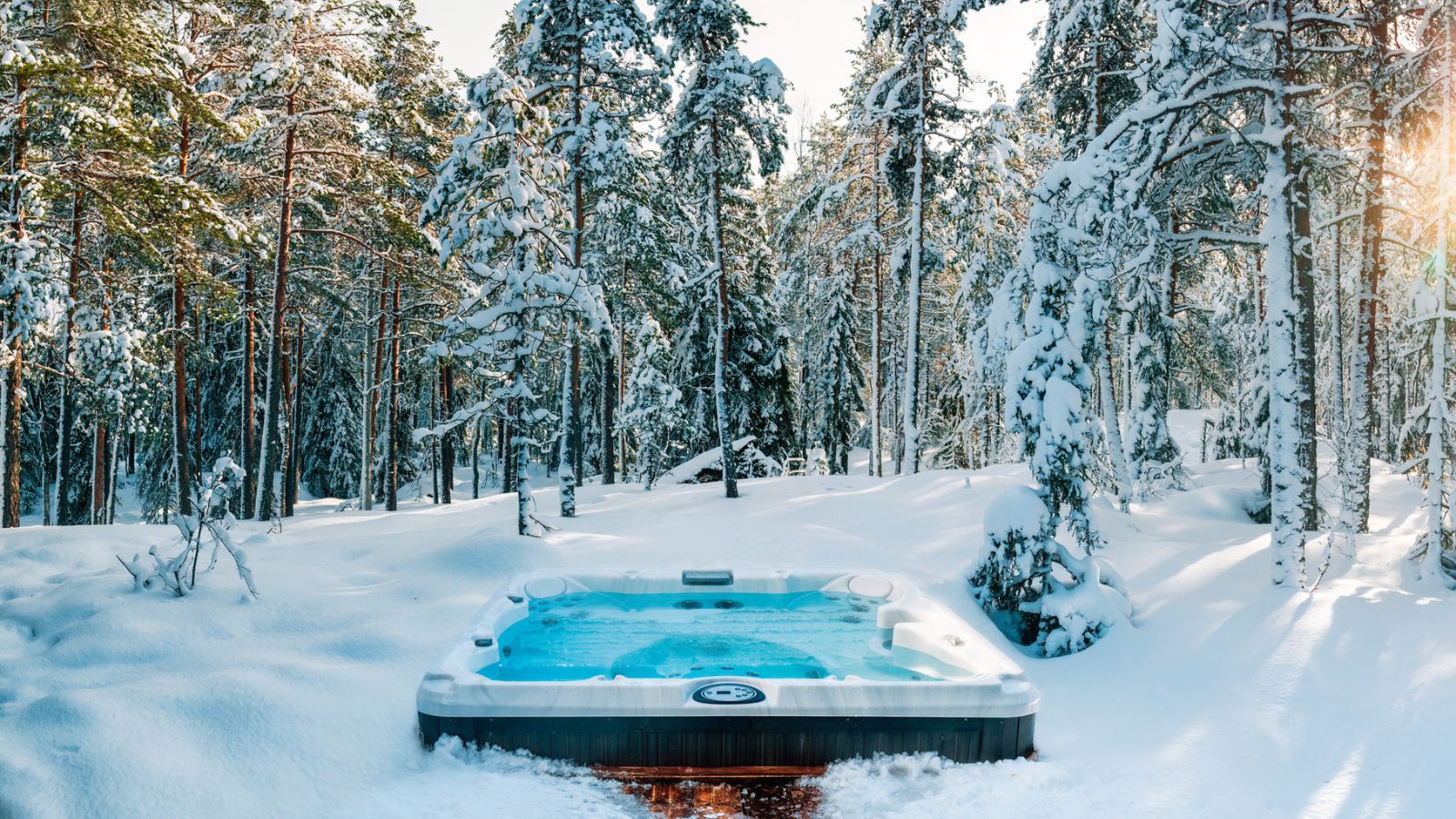
With winter almost upon us, cold weather means that there's increasingly little opportunity to enjoy your backyard. However, a hot tub offers a way to make the most the outdoors even when it snows.
Some hot tub users question whether or not hot tubs are safe to use in winter. The change from freezing air temperatures to toasty water can feel like a shock to the system.
I spoke to hot tub experts about safety of hot tubs in winter. Thankfully, hot tubs are safe to use in winter. Most people can use hot tubs without any issues at all. You just need to be careful with icy steps, and talk to a doctor if you have any health issues relating to your heart.
Be careful of icy steps
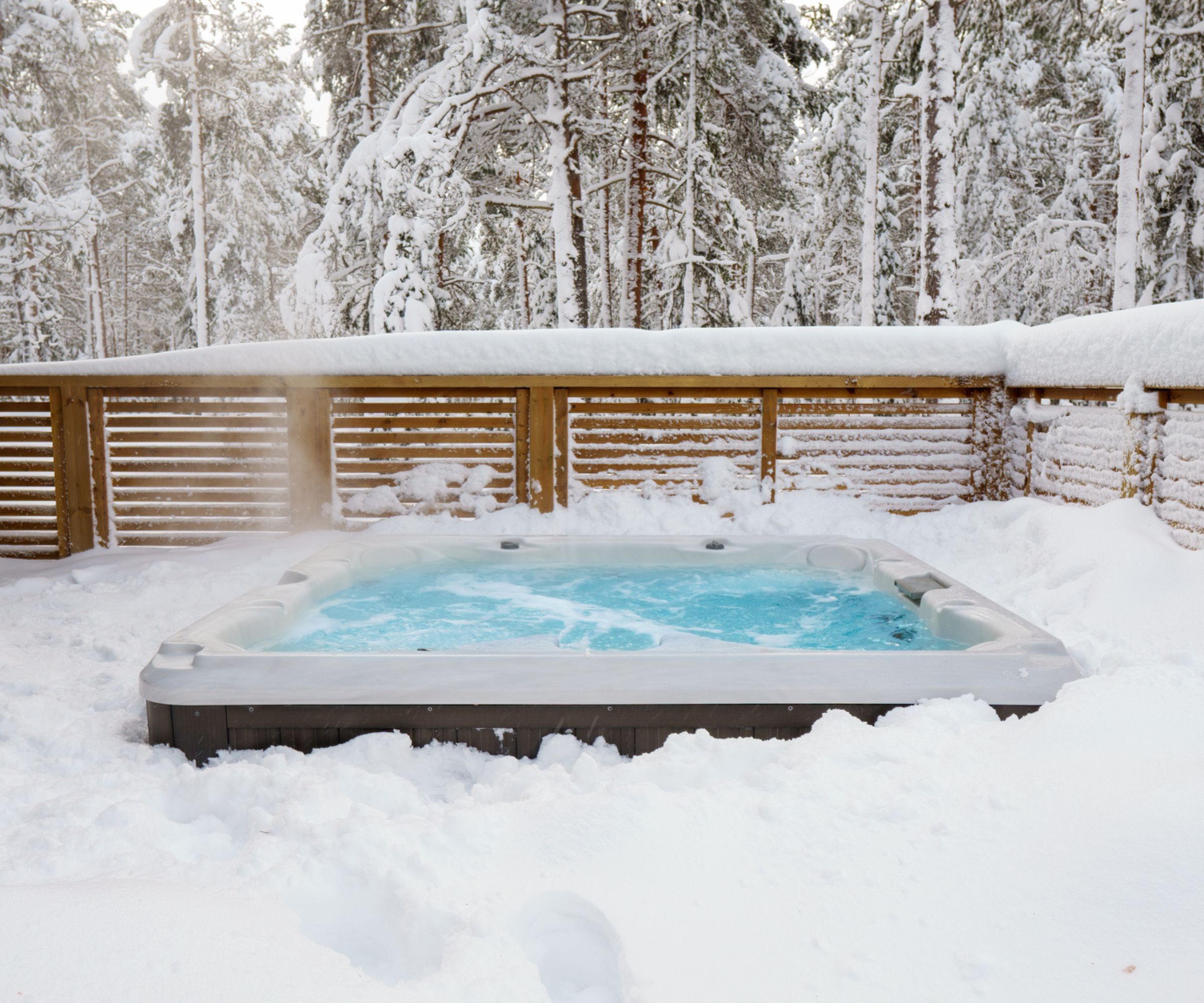
The biggest safety issue with using hot tubs in winter is that the area around them gets icy. While the water itself is usually safe, getting in and out can be slippery with ice.
Even if you clear the ice off the steps, as you splash around in the tub, you slosh water over the side. In the depths of winter, this can freeze and become slippery.
Thankfully, there are lots of solutions to this. Hot tub expert Merrick Miller says 'To keep your hot tub steps from getting icy, regular maintenance and some preventive measures are key. Clear off any snow and apply a non-slip treatment to the steps for better traction.'
There are lots of solutions to make hot tub steps non-slip year-round. Of course, you can grit them with salt in winter, but you can make them non-slip all year with cheap anti-slip tape like this at Amazon.
Design expertise in your inbox – from inspiring decorating ideas and beautiful celebrity homes to practical gardening advice and shopping round-ups.
There are a few ways you can stop the area around your hot tub icing over. Merrick says 'For extra safety in particularly cold climates, consider using an outdoor heated mat around the hot tub area to prevent ice from forming on the steps. This way, you'll have a safer entry and exit even in icy conditions.' These heated mats are also easy to find on the internet, such as the HeatTrak mats at Amazon.

Merrick Miller is content and education leader covering pool and hot tub topics for Leslie’s, a pool and spa retailer in the US.
Health risks
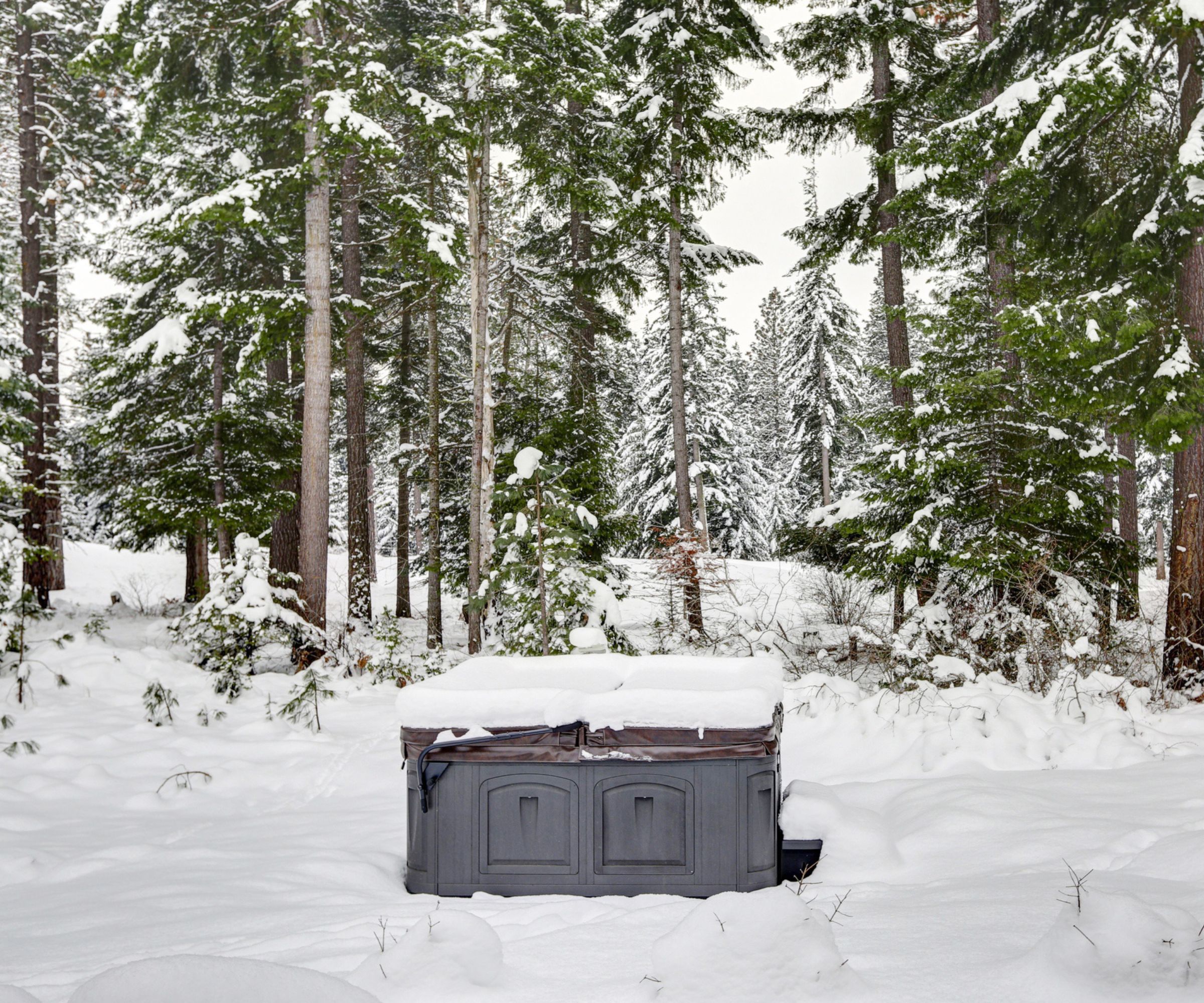
Ice aside, hot tubs are almost always safe to use. There are few health risks when using a hot tub in winter.
You should always talk to a doctor if you have a heart issue or a family history of poor heart health before installing a hot tub. Hot tubs can increase your heart rate and decrease your blood pressure. In extreme cases, this can trigger heart problems. These problems can be more likely in winter because your heart rate is higher in the cold as your body tries to regulate its temperature.
It sounds counterintuitive because your skin is wet, but long sessions in a hot tub can dehydrate you. The heat from the hot tub will make you sweat and lose water, dehydrating you over time.
On top of that, hot tubs can cause you to overheat, whatever the weather. If the temperature in the hot tub is above 100°F, it can make you dizzy, lightheaded, or nauseous. If you have a history of fainting, try to limit your hot tub sessions to 15 minutes at first.
Are there health benefits to using a hot tub?
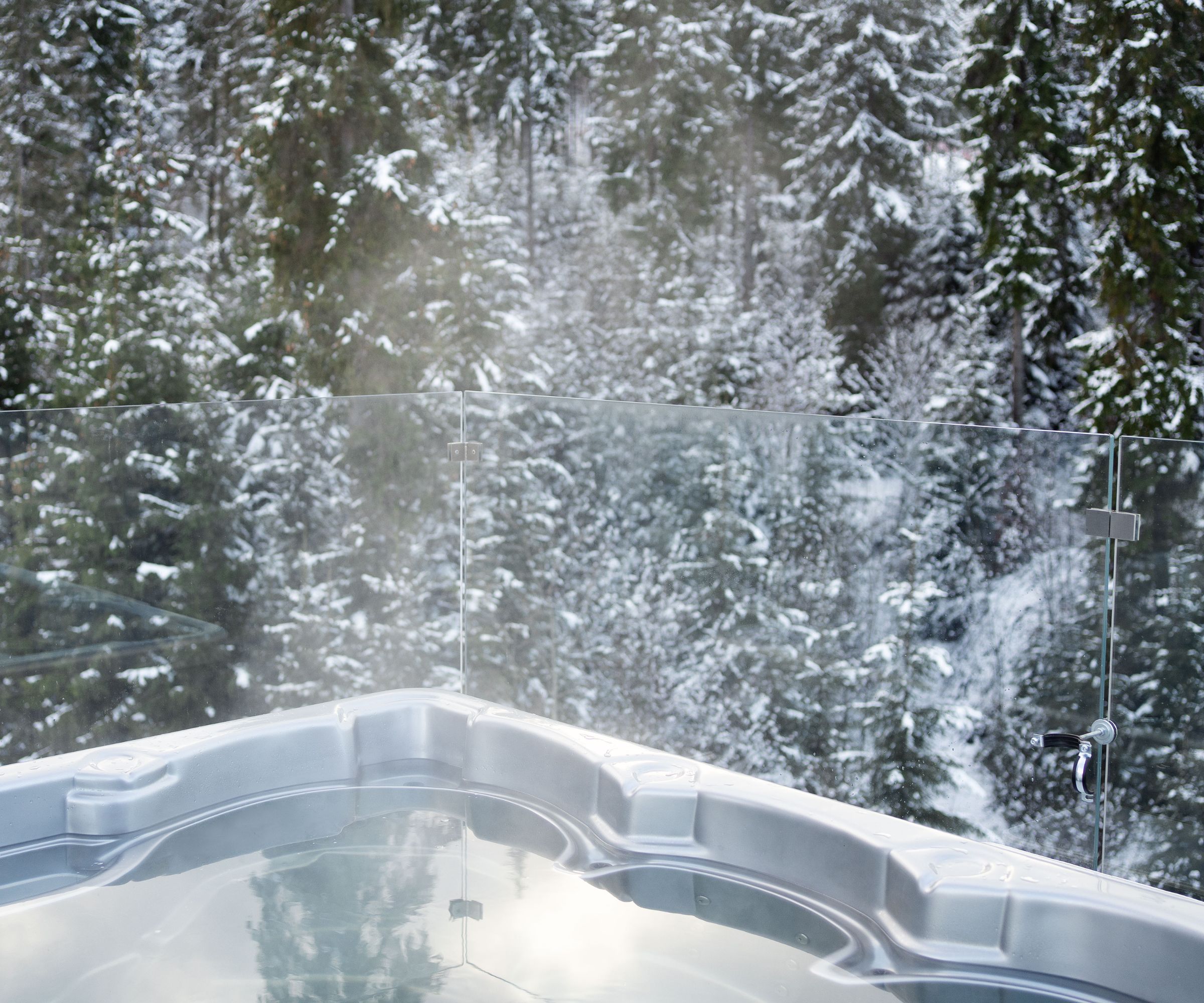
While there are minor risks, there are lots of health benefits to using a hot tub. It can reduce inflammation, ease sore muscles, improve circulation, and, while anecdotal, relieve stress.
There's also some evidence that hot tubs can improve your immune system, but it hasn't yet been proven.
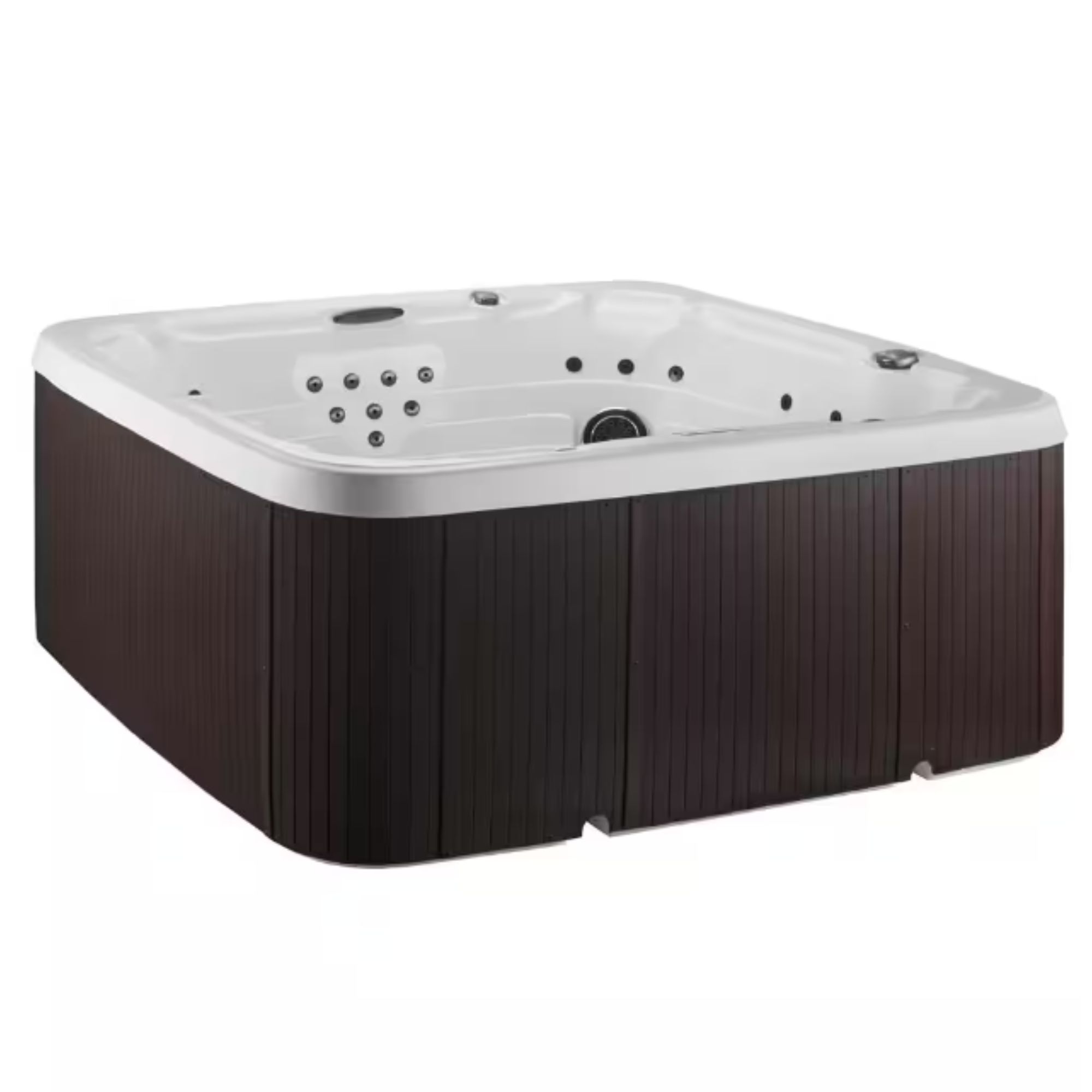
This huge hot tub has 65 jets and a seven-person capacity. It has hundreds of five-star reviews from other users, built-in LEDs, and a dedicated turbo-blaster back massager. Just bear in mind that seven people is a squeeze.
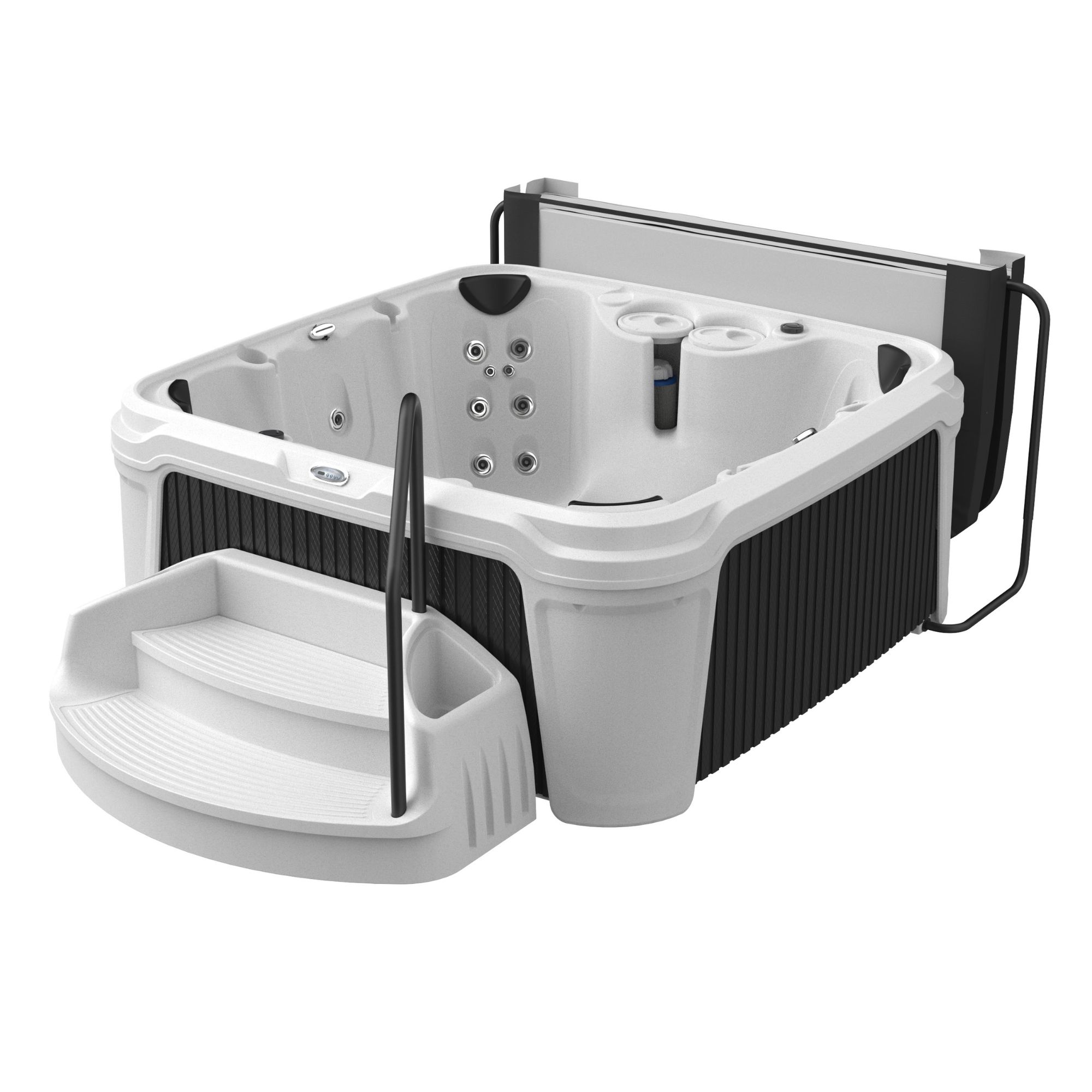
This hot tub is packed with bonus features like steps and a cover included as standard. It even has a cooler for your drinks. However, while it's listed as a six-person tub, it only comfortably seats four.
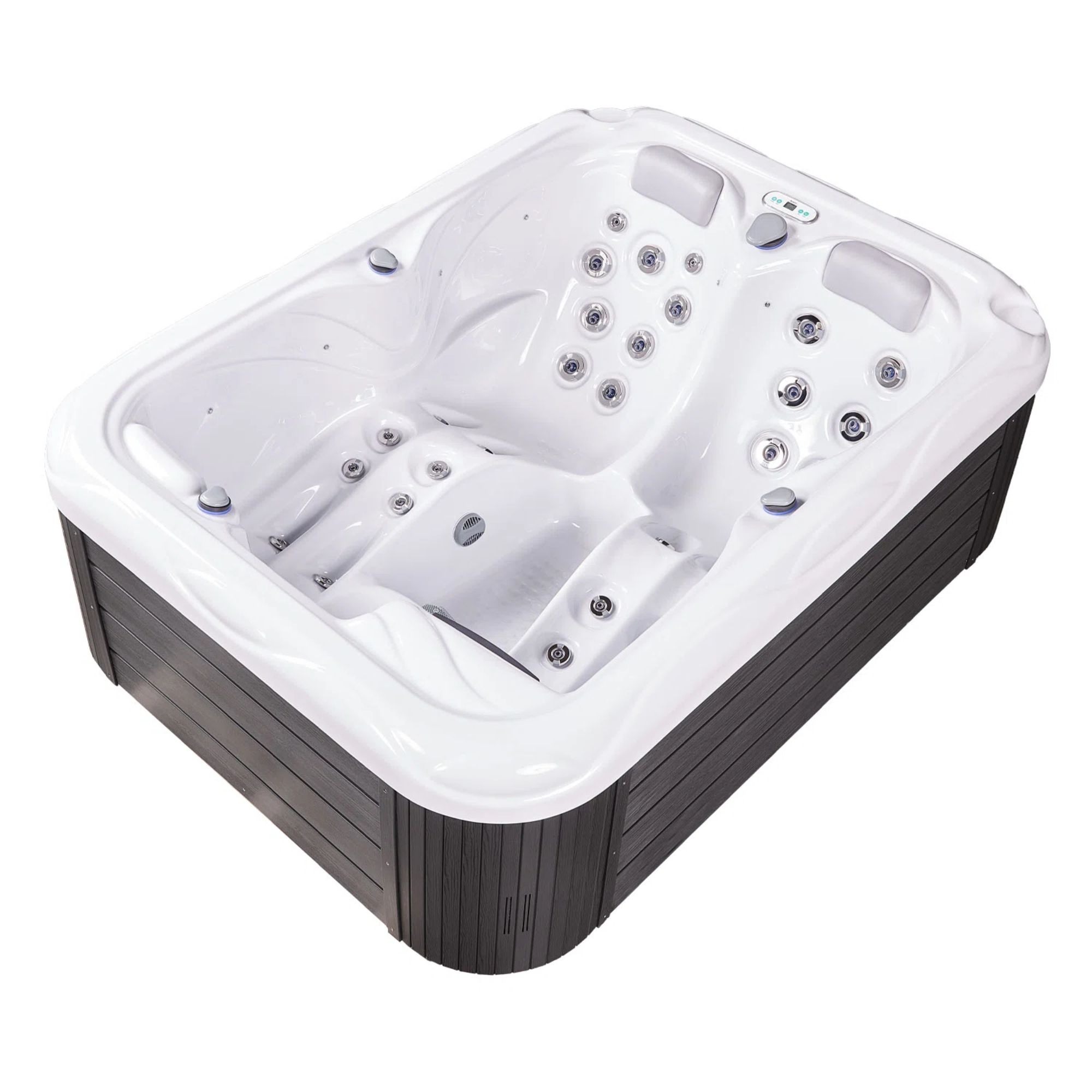
If space is tight, try this two-person hot tub. It has two lounge seats to massgae your entire body and built-in neck pillows.
FAQs
How do I stop my hot tub from freezing?
There are a few ways to stop a hot tub from freezing. Merrick says 'Investing in a high-quality, well-fitting hot tub cover is essential to keep your hot tub from freezing. A quality cover keeps heat in, minimizes heat loss, and prevents cold air from penetrating the water, making it much easier to maintain a stable temperature in the winter.'
She suggests that 'high-quality, marine-grade, UV-resistant vinyl' is the best material because it can withstand the cold, wet, and sun. On top of that, Merrick adds that 'using a floating thermal blanket underneath the main cover can further insulate the water, providing another layer of protection from freezing temperatures.'
Water features need a lot of upkeep over the winter. Learning how to winterize a pool is a crucial part of pool ownership that will keep your pool running for decades.

As a gardens and lifestyle contributor, Alex makes sure readers find the right information to help them make the best purchase. Alex got his start in reviewing at the iconic Good Housekeeping Institute, testing a wide range of household products and appliances. He then moved to BBC Gardeners’ World Magazine, assessing gardening tools, machinery, and wildlife products.